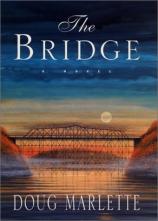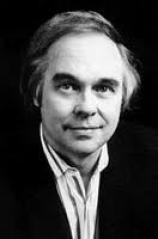Reading Group Guide
Discussion Questions
The Bridge

1. The author opens the novel with a description of his grandmother: "I knew only the Holy Terror version of my grandmother, the version I grew up with, the blue-haired ayatollah who dominated her family and frightened and humiliated me as a child" (page 1). Did this description of Mama Lucy color your perception of her? Did your view change as the story progressed? Why do you think the author chose to open the narrative with such a harsh depiction of Mama Lucy?
2. Pick has long harbored resentment against Mama Lucy for what he perceived as her part in his mother's incarceration in a mental institution and subsequent death. In one instance he states that Mama Lucy "truly didn't understand why I was stand-offish or why I held her treatment of my mother against her" (page 84). Do you, like Pick, believe that this is true?
3. "Even as my work made the house itself more livable, Cam and I grew farther apart. It almost seemed as though there was an inverse relationship between the state of the house and that of our marriage" (page 153). How does the restoration of Oaklawn play out in the story? What is the significance of its having once been Spencer Webb's house?
4. Class distinction plays a large part in the story, particularly between the mill owners and the lintheads in the 1930s. In what ways is history repeating itself with the current generation? In contrast, how has the mold been broken?
5. Pick is often harsh with Mama Lucy, particularly when he makes reference to her daughter Ruth Ann's suicide. Does she deserve such treatment?
6. When Sandy first gives him the booklet written by Davis Barlow recounting the details of the Burlington Dynamite Plot, Pick find himself unexpectedly moved. "It took my breath away. It was the voice of my people, of the Barlows and Cantrells, of the lintheads, of Karl Marx and Woody Guthrie and the prophet Jeremiah all rolled into one. It was my grandmother's voice, my daddy's, my own.... It called to me from across the decades" (page 93). Why is he so moved by the booklet? What does it represent to him?
7. In talking to Mama Lucy about the past, Pick sees an artistic beauty in her ability to recall in vivid detail the significant emotional events of her life. "Her visual gifts were quite profound.... She had the eye and ear of an artist or poet, if not the means of expression." He contemplates that "for the first time I was beginning to see myself in my grandmother and to recognize my own reflection in her and her gifts and I was astonished at the thought that I might have inherited that which I most valued in myself from my childhood nemesis" (page 220). How does he react when he realizes that he might have inherited his artistic ability from Mama Lucy?
8. What did you think was the most compelling scene in The Bridge? Why? How is this scene significant to the story?
9. In one instance Pick says to Mama Lucy about his mother, "'I think her bad leg reminded you of somebody you didn't want to be reminded of. I think she reminded you of Annie Laura. And you held that against her'" (pg 257). Do you agree with Pick? Do you believe Mama Lucy did not like his mother? How has this shaped Pick's character and affected his life?
10. When she finally learns the truth about Annie Laura's death from Jake Satterfield, Mama Lucy says to Pick about Dalton Earl, "He tried to tell me his side of the story. But I wouldn't hear it. I knowed how I seen it and that was the only way to see it. I reckon after losin' the two people I loved most in this world I was lookin' for someone to blame.... But I see now it won't him I was mad at" (366). What is Mama Lucy referring to? Who was she mad at, and why?
11. Discuss the significance of the novel's title. How does the symbolism of "the bridge" play out in the story?
12. One reviewer stated that The Bridge "takes some good satirical pokes at 21st-century life along the way." To what do you think the reviewer is referring? Provide some examples from the story.
The Bridge
- Publication Date: September 12, 2012
- Hardcover: 400 pages
- Publisher: Harper
- ISBN-10: 0060186305
- ISBN-13: 9780060186302







